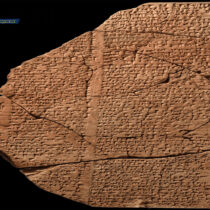In the Graeco-Roman world vision was studied empirically, on the basis of natural observation and philosophical – mostly Peripatetic – consideration; according to the latter, the human eye (even though its structure was becoming increasingly known to anatomists and physiologists) performed a purely teleological function. In Euclidean optics, the “eye”, according to which the laws of reflection and refraction were observed, is an abstract and theoretically perfect tool, not an optical instrument in itself. Accordingly, the laws of vision composed by Euclid and his successors had a minor impact on ophthalmology. Eye ailments such as various inflammations and longand short-sightedness received symptomatic treatments rooted in old traditions and practical knowledge. Hippocratic physiologists, such as Galen and Celsus, based their doctrines on Aristotle and his various writings, including the eclectic Problemata. At the same time, art, infused with science and popular wisdom, stands as an eloquent expression of the way the Graeco- Roman world understood the Gaze.
Vision, Optics, and Ophthalmology in the Graeco-Roman World
30 Aug 2012
by Archaeology Newsroom
- A
- A
- A


